Rein in Stress - Parasympathetic Power
by Beth Biggee, MD
“The number one root of all illness, as we know, is stress.”
Stress is any thought or emotion of anxiety, irritation, frustration, or hopelessness created by an external situation or event. Stress is also created not just by the event but by the ongoing attitudes surrounding the event, even when the event is over. This can cause persistent agitation, worry, anxiety, anger, judgments, resentment, insecurities and self-doubt. +Heartmath definition.
The scope of stress in the United States is enormously high. In 2022, the American Psychological Association reported that 27% of 3,192 adult respondents felt that most days they were so stressed they could not function in daily life. Stress-related medical and psychiatric conditions are among the leading contributors to morbidity and mortality worldwide including cardiovascular diseases, cancer, immune system disorders, metabolic disorders, post-traumatic stress disorder (PTSD), major depressive disorder, cognitive decline, psychotic disorders, and addictions.
The stress response is turned on in our brain who then signals the autonomic sympathetic nervous system to fight, flight, or freeze. This starts an immediate reaction in the body of elevated heart rate, respirations, blood pressure, mobilization of sugar, muscle contractions, and release of high stress hormones. We need all of this if we are running away from a tiger, lion, or bear. If left unchecked or chronically turned “on”, this response causes inflammation, autoimmunity, metabolic dysregulation, cellular damage, and reduced secretion and melatonin. We honor and thank our sympathetic nervous system. It is responsible for removing our hand from a hot stove or moving our foot away from a stepping on a snake but we simply cannot live in this “sympathetic overdrive” for too long. If we live in a perpetual state of flighting, fleeing, or freezing in life, chronic disease will ensue.
Alternatively, we can learn to live in a rested and calm state, a tending and befriending state. This can be done by activating our parasympathetic autonomic nervous system. This system is located in the brainstem and vagus nerve and when stimulated is responsible for releasing feel- good neurotransmitters. This system reduces our heart rate, respiratory rate, and blood pressure and the cardiorespiratory system becomes very rhythmic. When this state is turned “on”, our bodies shift to a relaxation response in heart, muscles, and digestion. We have enhanced abilities to fight infection, improve metabolism and glucose regulation, improve sleep and wellbeing, enhance cognition, and tun on cellular repair genes.
There are many ways to cultivate the parasympathetic nervous system response. Techniques include walk in nature, deep breathing, alternate nostril or diaphragmatic breathing, warm bath, yoga, tai chi, meditation, massage, aromatherapy, acupuncture, EFT tapping, guided imagery, hypnosis, cold water, cold water shower with hot water alternate 20 sec 2 min, sing, chant, gargle, laugh, prayer, early morning sun, sleep on R side, neck exercises, and social connection. A study showed that “mirthful” laughter differentially affects serum pro-and ani-inflammatory cytokine levels depending on the level of disease activity in patients with rheumatoid arthritis. When the parasympathetic nervous system is activated appropriately.
I invite you to spend less time cultivating stressful thought patterns about events that are not imminent and take more time out of your day, week, and month to activate your parasympathetic nervous system. Let’s invite more rest, digest, calm, bliss, tending and befriending into our lives.
Be Well,
Beth Biggee, MD, ABIM, ABOIM, ABLM

